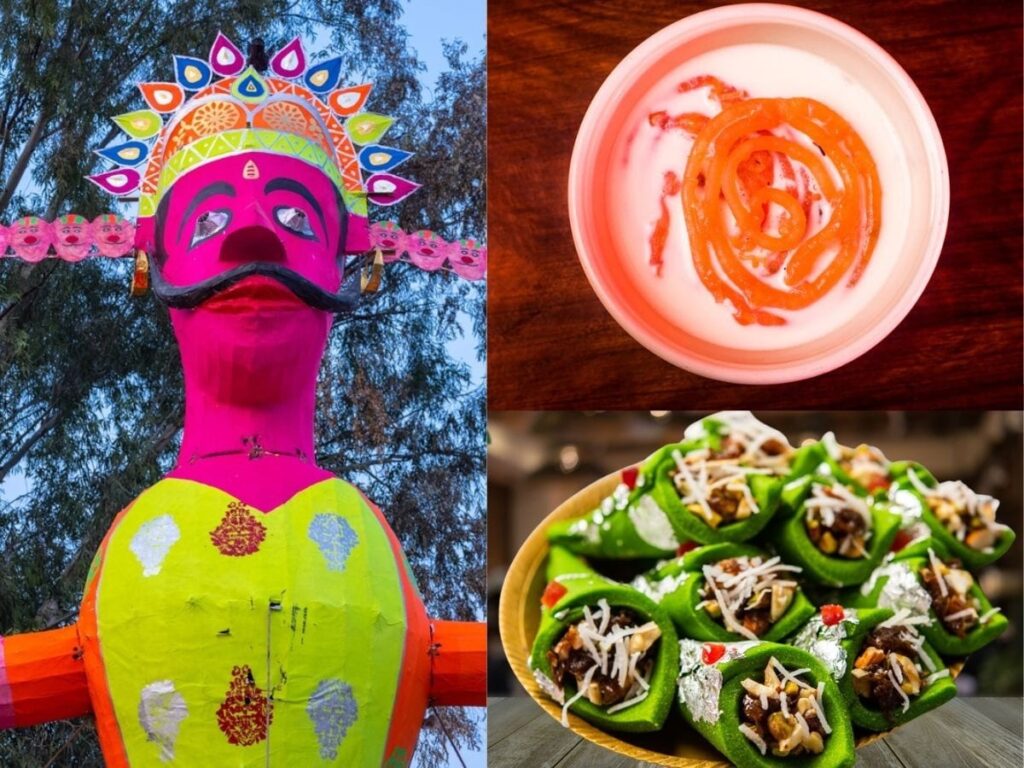Dussehra, also known as Vijaya Dashami, is one of the most significant Hindu festivals celebrated in India. This year, it will be observed on October 12, marking the triumph of good over evil, symbolized through the victory of Lord Rama over the demon king Ravana. Apart from the grand celebrations, many families have unique traditions associated with this day. One such tradition is the consumption of betel leaves and milk-jalebi. But what is the reason behind these delightful offerings? Let’s explore.
The Significance of Dussehra
Dussehra is celebrated on the 10th day of the Hindu lunar month of Ashwin, usually falling between September and October. The festival symbolizes the victory of Lord Rama, an incarnation of Vishnu, who fought valiantly to rescue his wife Sita from Ravana, the king of Lanka. This occasion also marks the end of Navratri, a nine-night festival dedicated to the worship of the mother goddess Durga.
Traditions and Celebrations
The festival is celebrated with various rituals, including the burning of effigies of Ravana, Meghnath, and Kumbhkaran, which represent the eradication of evil. Additionally, many communities organize plays known as Ramlila that recount the story of Rama’s life and his fight against injustice.
Food Traditions on Dussehra
One of the most intriguing aspects of Dussehra is the culinary delights associated with the festival. In many households, it is customary to offer and consume specific foods that carry deep cultural significance.
Why Betel Leaves and Milk-Jalebi?
The practice of eating betel leaves (paan) on Dussehra can be traced back to its association with purity and auspiciousness. Betel leaves are often used in religious rituals and are believed to bring good fortune and prosperity. Milk-jalebi, a sweet delicacy, symbolizes the joy and gratitude associated with the harvest season, as well as the sweetness of victory over evil.
| Food Item | Symbolism |
|---|---|
| Betel Leaves (Paan) | Purity and auspiciousness |
| Milk-Jalebi | Celebration of victory and joy |
Conclusion
Dussehra is not just a festival; it is a blend of cultural, spiritual, and culinary traditions that reflect the richness of Indian heritage. The consumption of betel leaves and milk-jalebi represents the joyous spirit of the festival as well as the significance of auspicious beginnings. As families come together to celebrate this occasion, they continue to pass down valuable traditions that remind us of the timeless battle between good and evil, along with the importance of celebrating our victories, big and small.
